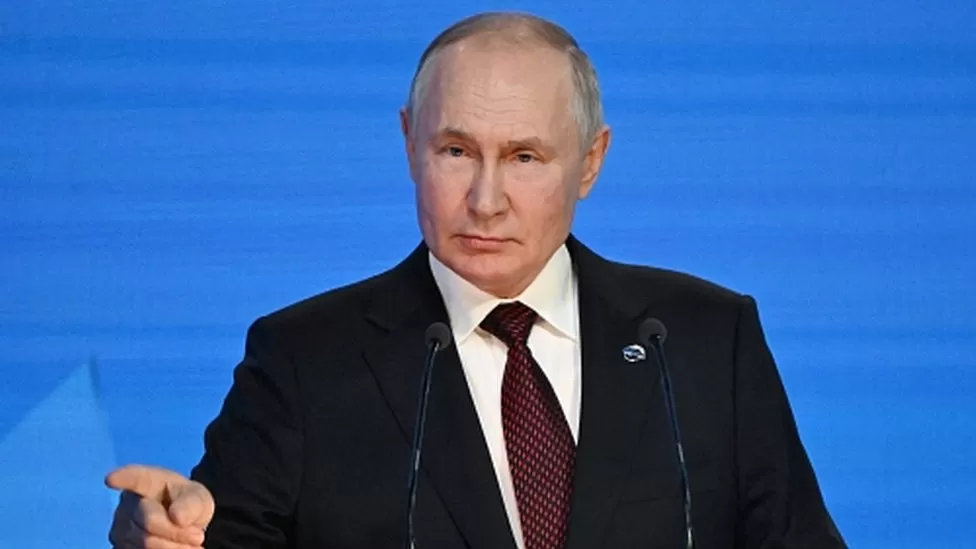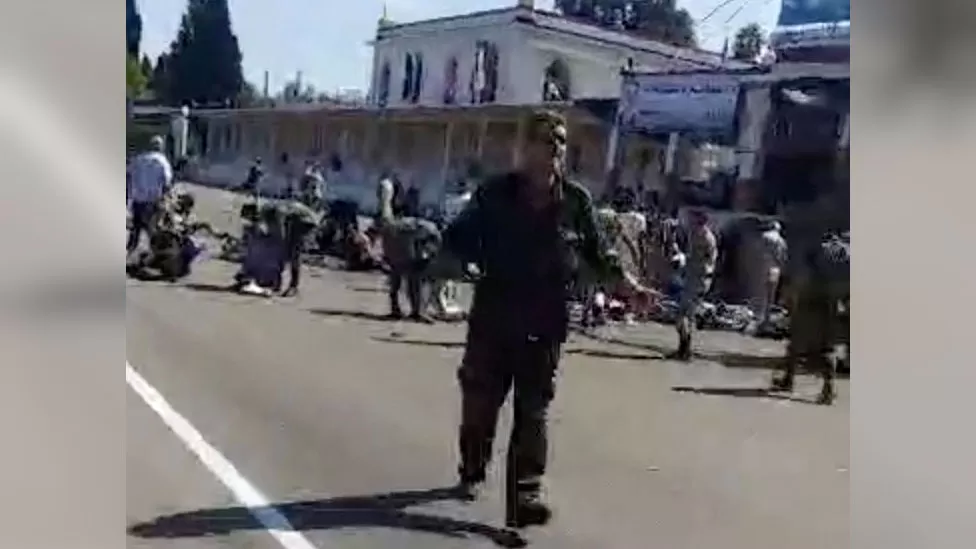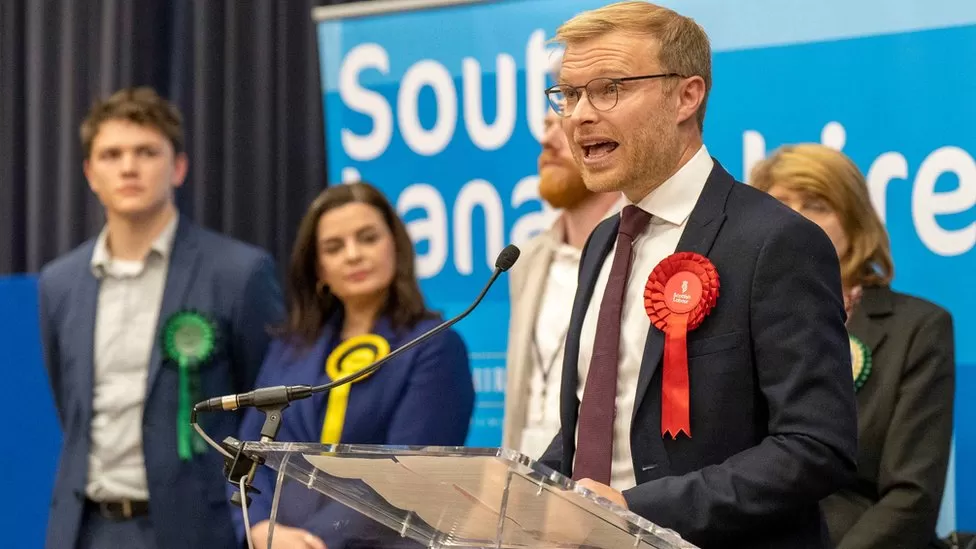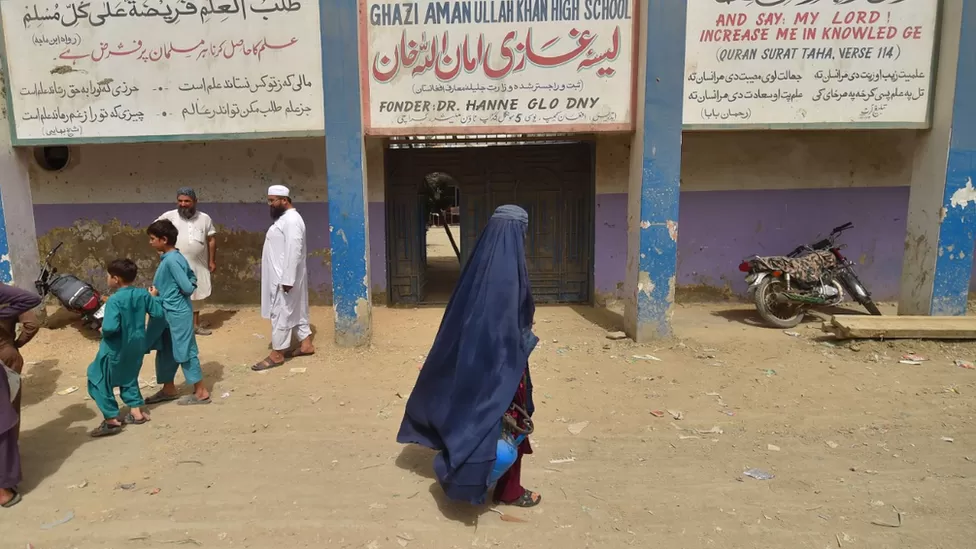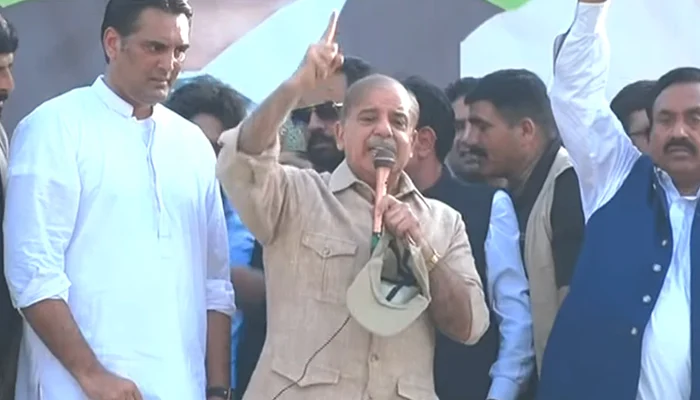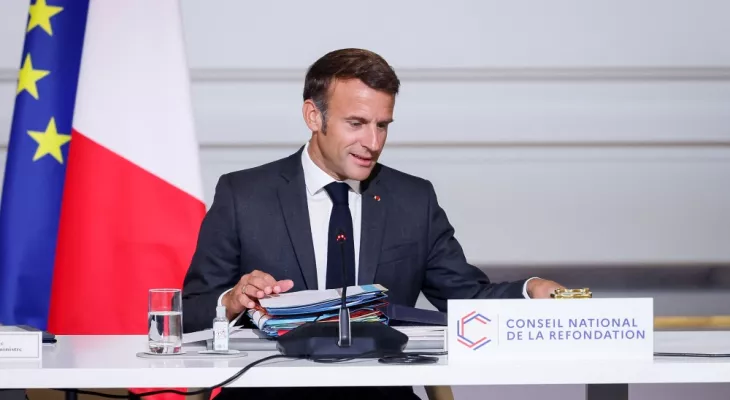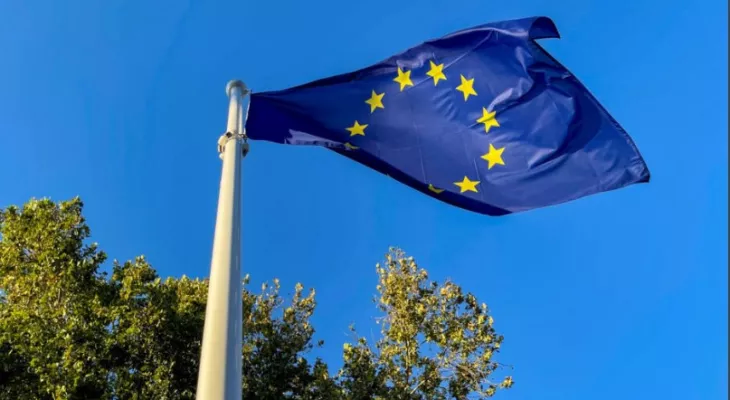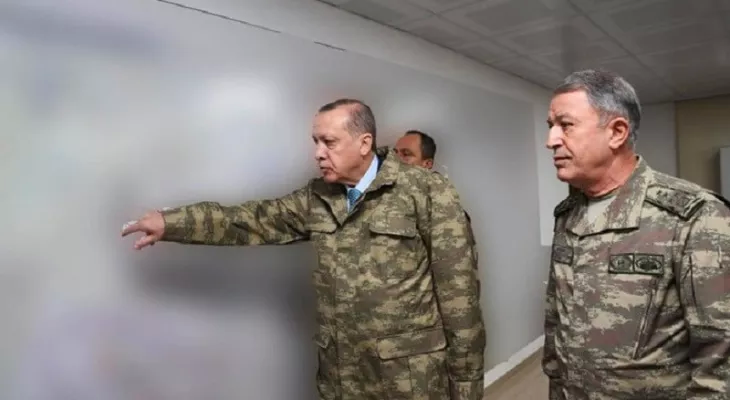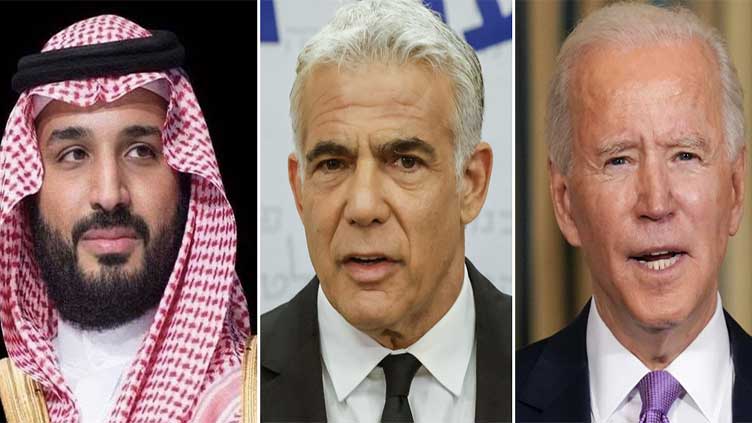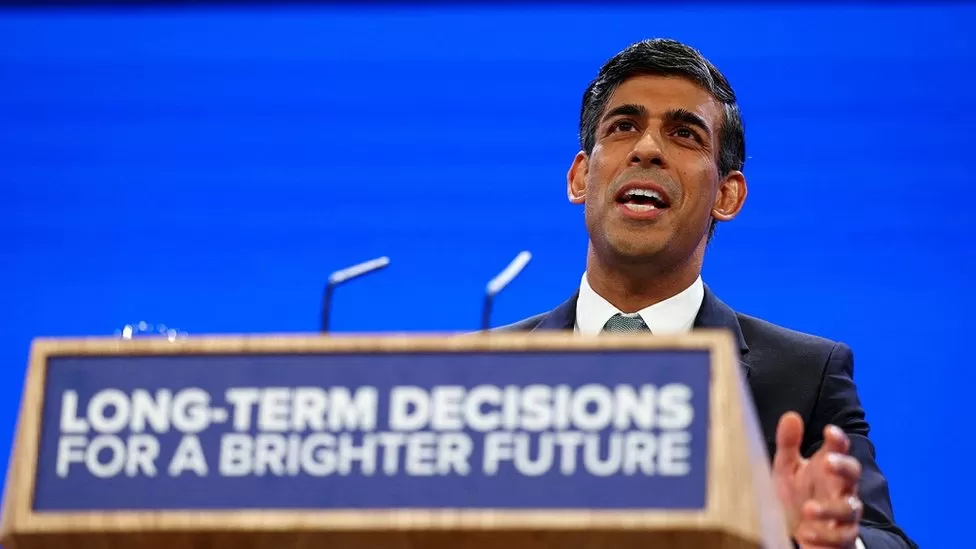The president’s comments came after his spokesman rejected a New York Times report that testing of the weapon, known as the Burevestnik, was imminent.
The experimental weapon, first announced in 2018, has been hailed as having a potentially unlimited range.
It is said to be powered by a nuclear reactor and is capable of carrying a nuclear warhead.
But little is officially known of its capabilities and there are reports that previous tests have failed.
President Putin’s account has not been independently confirmed and there has been no word so far from the Russian defence ministry.
However, satellite images circulated last month indicated that Russia had recently built new facilities at a remote Arctic island location where Soviet nuclear tests were previously conducted.
The images showed construction work on Novaya Zemlya, an island archipelago in the northern Barents Sea.
“We have now virtually finished work on modern types of strategic weaponry about which I have spoken and which I announced a few years ago,” Mr Putin told a meeting in the Black Sea resort of Sochi on Thursday which was broadcast live on state television.
He added: “A final successful test has been held of Burevestnik – a global-range nuclear-powered cruise missile.”
The missile, code-named Skyfall by Nato, is said to be powered by a nuclear reactor, which is supposed to activate after solid fuel rocket boosters have launched it into the air.
But the New York Times quoted an arms control campaign group, the Nuclear Threat Initiative, as saying that the previous known 13 tests of the system between 2017 and 2019 were all unsuccessful.
Mr Putin also told his audience that work was almost complete on an intercontinental ballistic missile, called Sarmat.
Despite Mr Putin’s apparent disclosure, he said Russia had no plans to change its nuclear doctrine – the policy that sets out the circumstances in which its forces might use nuclear weapons.
He added that the existence of the Russian state was not under threat and “no person of sound mind and clear memory” would contemplate a nuclear strike against it.
But he did indicate that Russia could theoretically withdraw its ratification of the 1996 Comprehensive Nuclear-Test Ban Treaty. He argued that as the US had signed but never ratified it, it was possible for Russia to act in the same way.
During the same meeting in Sochi, Mr Putin said the plane crash that killed Wagner Group leader Yevgeny Prigozhin in August was not caused by “outside interference” such as a missile attack.
He said the mercenary chief and others who died in the crash had been found to have “hand grenade fragments” in their bodies, adding: “The head of the Investigations Committee reported this to me just the other day.”
The president did not explain how a grenade could have exploded on board, but said he thought investigators should have carried out alcohol and drug tests on the bodies of the crash victims.
No official report on the cause of the crash has yet been published.


